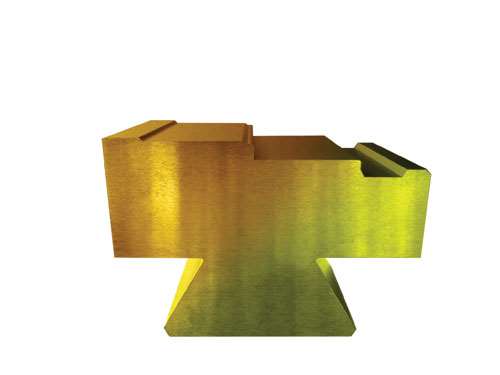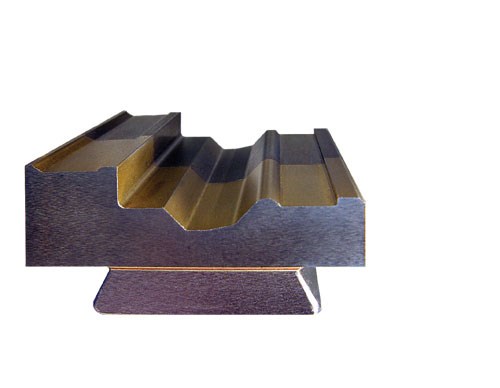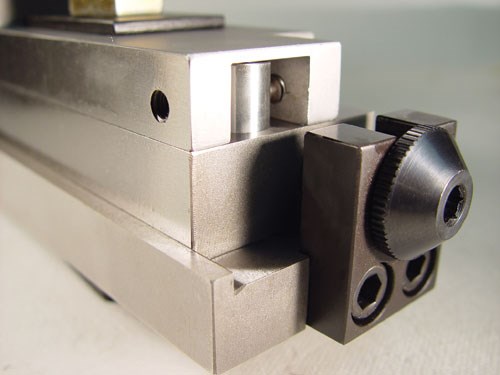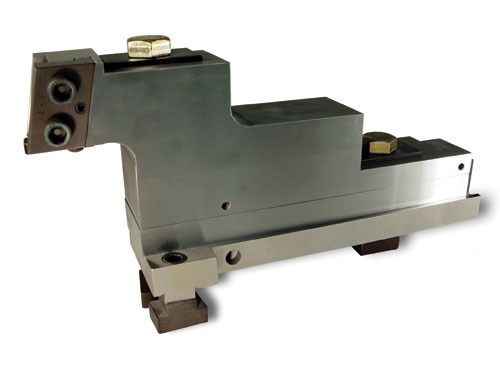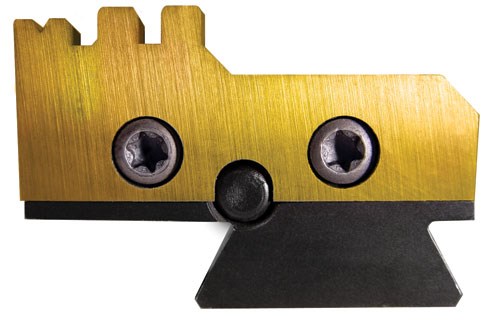Quick Change for Screw Machines
New quick-change dovetail form toolholders bring lean operations at a lean price.
#workforcedevelopment
As the economy recovers, cash strapped parts manufacturers are scrambling to reduce setup times in an effort to meet the ever shorter leadtime and turnaround requirements of the few key customers who are still placing orders. These challenges are particularly apparent in the screw machine industry, where huge advantages in cycle time can be offset by longer job change-over times. In answer to the challenges of tight cash flow and shorter leadtimes, Schlitter Tool (Warren, Mich.) has added a new line of quick-change dovetail form tooling, dubbed the T-Series, to help savvy manufacturers go lean without breaking the budget.
“This has been a time of unprecedented challenge to the industry,” says David Schlitter, third-generation owner and operator of Schlitter Tool. “We’re doing all we can to develop new products to help our customers go lean on a budget so they can maintain positive momentum in their own recoveries.” The new T-Series reduces setup times by allowing the operator to lock in each of the three main adjustments independently during the setup process, resulting in quicker, more accurate job change-over.
Featured Content
Even before the downturn, job shops and captive screw shops were being pressured with shrinking order quantities and shorter leadtimes. With cycle times measured in only a few seconds, screw machines have been the mainstay of high production parts manufacture. Their main drawback is the relatively long setup time compared with a CNC lathe.
By amortizing the setup time over many parts, and with much faster cycle times than CNC lathes, screw machines have had a competitive edge in mid- to large-volume manufacturing, regardless of the industry. With shrinking lot sizes, screw machine engineers have been forced to incorporate lean principles in their setups. By reducing setup times, and with their natural advantage in cycle time, screw machines can retain their competitive edge. With parts manufacturing on the rebound, those companies that can offer the good pricing of screw machines while still providing quick turnaround will find themselves with enormous opportunity.
Schlitter is putting its 75 years of experience in providing engineered tooling solutions for a variety of industries to work to help screw machine shops shrink their setup times. The quick-change dovetail form toolholders reduce setup time by giving the operator independent adjustment of lateral, infeed and taper adjustments. With older designs, the operator could find himself having to reset one adjustment after resetting another, sometimes making small adjustments a major time waster. While similar systems have been available, they have traditionally carried a high price, preventing many companies from adopting the system.
The quick-change holders are available for all types of screw machines, including Acme, New Britain, Warner & Swasey, Wickman, Greenlee, Schutte, Euroturn and Tornos. The system uses a three-piece design, allowing the base plate to be mounted securely to the slide after the lateral position is set. The two-piece body can then be fine-tuned without compromising the setup. According to the company, the system is designed to provide 20-percent time savings to other quick-change systems without compromising design or performance. A major valve and fittings manufacturer recently saved more than $5,000 when re-tooling two machines for lean change-over.
Mr. Schiltter adds, “Because of our own lean transformation several years ago, we are in a position to provide aggressive pricing on our tooling. Despite the downturn, we’ve been blessed with terrific machinists and suppliers who really care about the end customer.” In today’s economy, aggressive pricing structures are important in helping screw machine shops keep to a tight budget.
RELATED CONTENT
-
Context — The Missing Key to Workforce Development
Upskilling your current workforce is as important as finding new talent. To expose them to experiences that encourage them to become problem-solvers is imperative.
-
Inventory Control Systems For The Shop
An ongoing effort towards more efficient operations drove this shop to take a closer look at indirect material usage, subsequently leading to implementation of a new system for tracking toolroom inventory.
-
New Line of Swiss-Types for Job Shops Eyeing High-Production Work
Mazak now offers the Syncrex line of Swiss-type CNC lathes — its first — targeting machine shops getting into higher volume production of complex parts.


